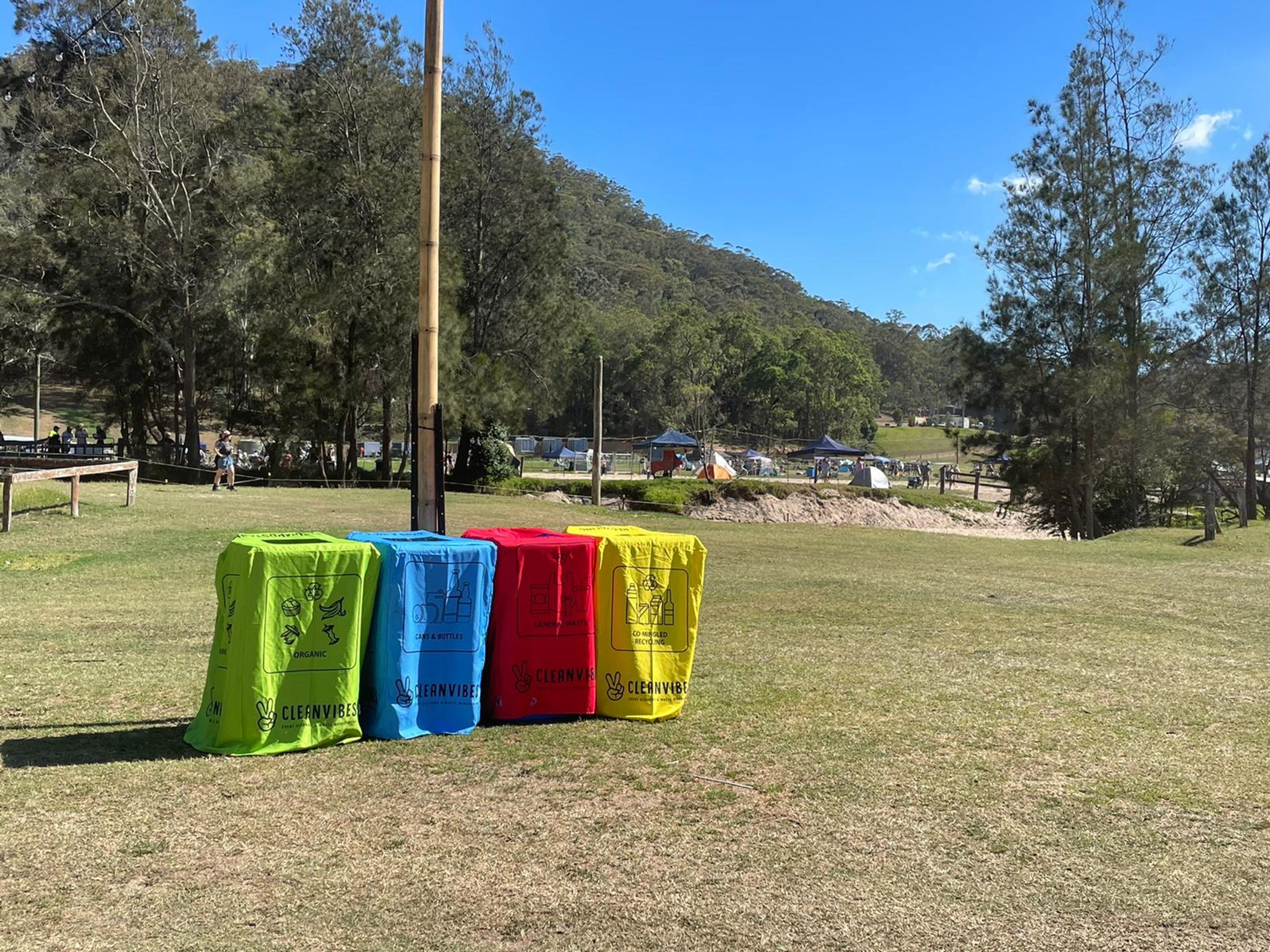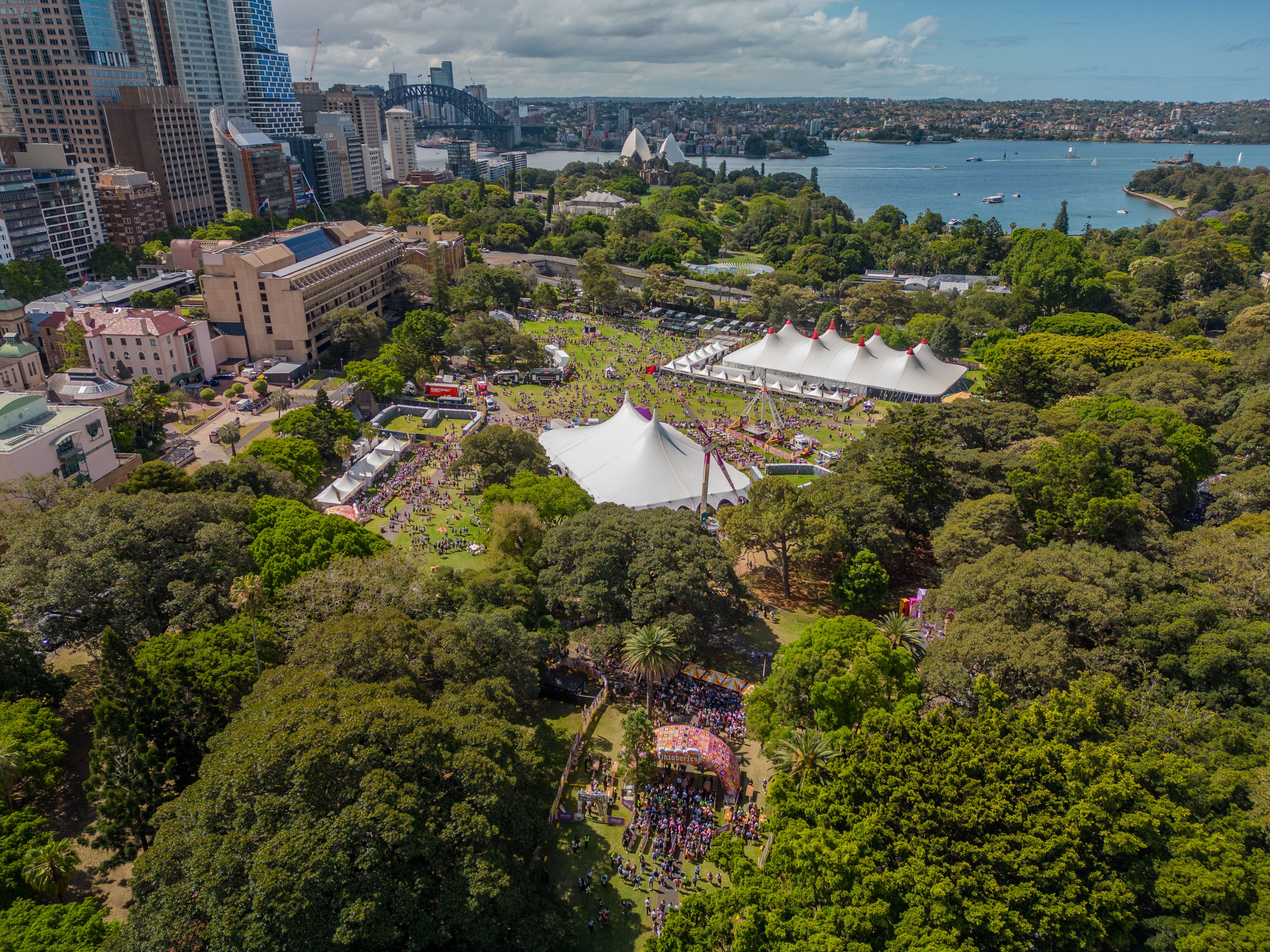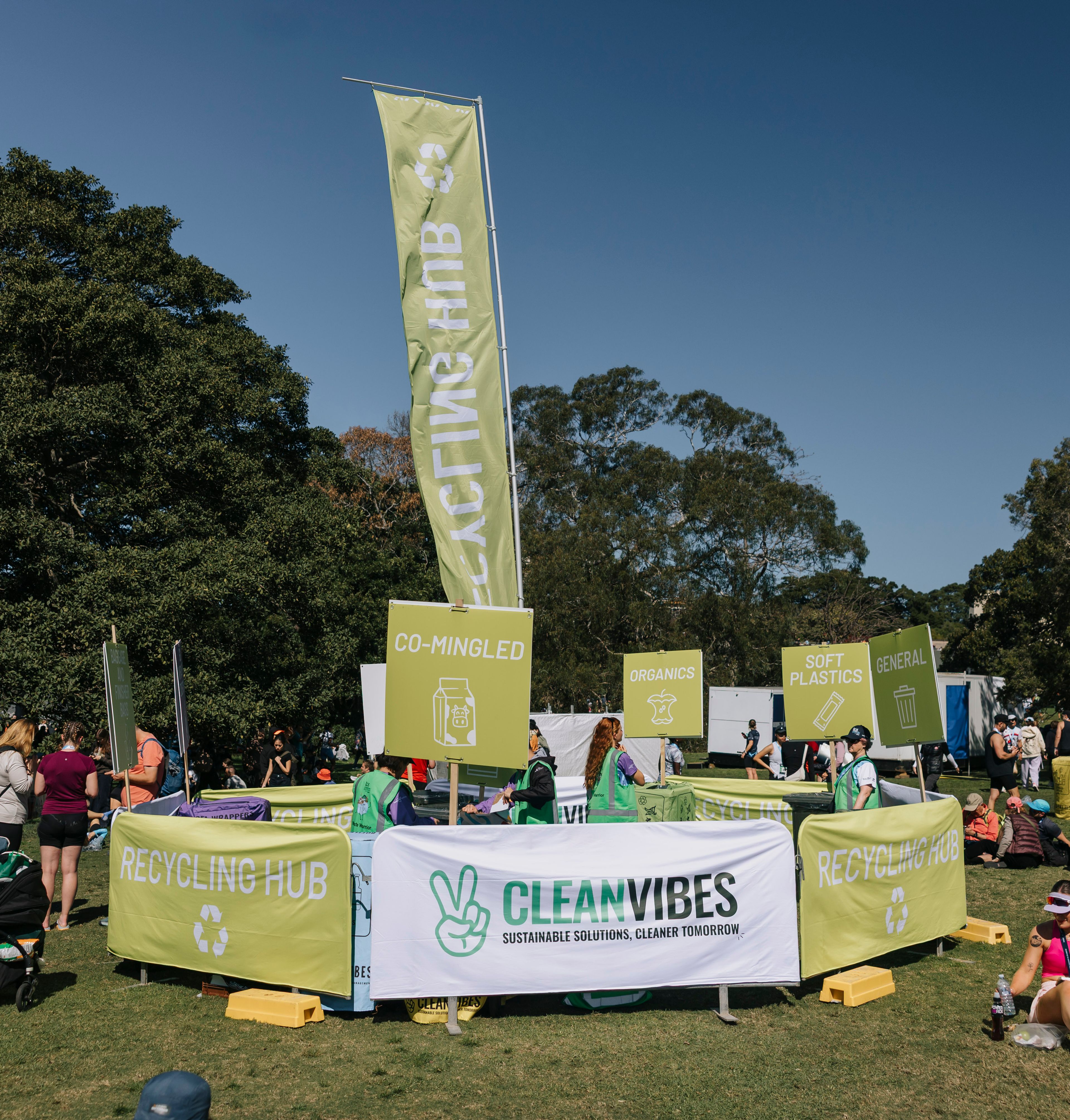Greening Your Event
Sustainable event management for a brighter future
Sustainable practices in event management are gaining traction, ensuring that gatherings leave a minimal environmental footprint. From music festivals to corporate conferences, event organisers are increasingly adopting eco-friendly initiatives. Here’s a look at some top sustainable practices being embraced across the country and how these measures can make your event more eco-friendly from start to finish.
Embrace Reusable Cups
One of the standout sustainable event management practices is using reusable cups. Many events now partner with organisations that provide reusable options, significantly reducing reliance on single-use plastics. Festivals like Beyond The Valley and Strawberry Fields have successfully implemented these systems. Attendees pay a small deposit for reusable cups, which they can reclaim upon returning the items at designated points, promoting a circular economy within the event space. At Clean Vibes, we partner with TURN reusable cups to facilitate this process, significantly reducing the environmental impact of our events.

Festival goers with reusable cup
Go Reusable with Crockery
Another popular method in eco-friendly event planning is using reusable crockery to reduce waste. Events are partnering with companies that offer reusable plates and utensils, cutting down on single-use items. This simple change significantly decreases the volume of waste generated, promoting a more sustainable event environment.

Reusable cutleries
Switch to Digital Check-Ins
Switching to digital check-ins revolutionises guest arrivals and drastically cuts down on paper waste. By using tablets, smartphones, or specialised devices for registration, events can eliminate the need for printed badges and lists. Important documents and materials are increasingly provided in digital formats accessible via event apps, further reducing paper use and enhancing attendee convenience.

People holding mobile phones
Water Stations Instead of Bottles
Keeping hydrated at events is essential. Sustainable water stations offer a practical solution, allowing attendees to refill their reusable bottles or cups at various points throughout the venue. This initiative not only reduces plastic waste but also simplifies the logistics and costs associated with distributing bottled water.

Refilling bottle with water
Local and Plant-Based Catering
Food choices at events have a significant environmental impact. Many events now offer menus that prioritise locally-sourced, organic, and plant-based options. These choices reduce the carbon footprint associated with food production and transportation. Plant-based diets, in particular, are less resource-intensive and contribute to lower greenhouse gas emissions.

Ordering food at a food truck
Recycling Initiatives
Recycling, defined as converting waste into reusable material, is a fundamental sustainable initiative for any event. However, recycling practices and facilities can vary widely by venue and region. When selecting a venue or caterers, ensure they have an effective recycling program. If not, discuss your recycling expectations with them. Determine if they can recycle paper, cardboard, tins, glass, plastic, or cooking oil. Clarify any associated costs outside their regular operations. If regional recycling facilities are limited, consider sending recyclables to specialised centres.
If your venue needs additional recycling resources, consider leveraging this as a sponsorship opportunity. You can offer digital advertising space to sponsors to help achieve your sustainability goals or provide prime (recyclable or electronic) signage around the venue, showcasing their partnership in reducing the event's carbon footprint.
Effective Waste Management
Proper waste management logistics are crucial to making an event eco-friendly. Here are key strategies to ensure your waste management plan is effective.
Labelled Bins and Clear Signage
Ensure that clearly labelled bins are available throughout the venue. Use clear and understandable signage placed at eye level to guide attendees on proper waste disposal. Restrict bin apertures to align with the specific waste types: circular openings for cans and bottles, and smaller slits for paper. This helps attendees think twice before discarding waste and encourages correct disposal.
Accountability and Transparency
Work with your waste management contractor to ensure transparency about the waste's post-event destination. As part of the contract, they can be required to report on where the waste and recycling are processed. This not only holds the contractor accountable but also ensures that your environmental efforts are genuine and effective.
For example, Clean Vibes offers a comprehensive suite of services to support your event's waste management needs:
- Waste Collection: Efficient and reliable waste collection services tailored to your event's requirements.
- Sorting and Recycling: Ensuring waste is sorted correctly and recycled to minimise landfill contributions.
- Reporting and Audits: Detailed post-event reports on waste diversion rates and actionable recommendations for improving sustainability in future events.
- Specialist Support: Providing resources and expertise to enhance your venue’s recycling capabilities.

Clean Vibes set of bins
Measure and Improve Sustainability
Tools like the Green Event Calculator help organisers measure and understand the environmental impact of their events. These tools take into account various factors such as energy consumption, waste generation, and carbon emissions, providing a comprehensive overview that can guide you towards planning an eco-friendly event.

Mix of general waste and recycling items
Promote Public Transit and Carpooling
Reducing an event's carbon footprint can be significantly achieved by encouraging the use of public transportation. Offering free shuttle services or choosing venues near train stations can motivate attendees to leave their cars at home, thus cutting down CO2 emissions. Make sure to communicate public transport options clearly to your attendees. If they're unaware of these options, they might default to driving. Provide your attendees with detailed maps highlighting bus and train routes. Share this information through social media or email, and include fare details or links to fare calculators.
If a venue with good public transport options isn’t available, consider encouraging carpooling. Offer perks such as prime parking spots, discounted parking fees, or reduced ticket prices for those who carpool. These incentives can encourage attendees to share rides, further decreasing the environmental impact of your event.

Train
Choose Accessible Venues
Selecting an accessible venue is key to reducing your event’s carbon footprint. Even if a venue meets all sustainability standards, it won’t matter if attendees need to travel long distances using inefficient transportation methods. The carbon emissions from attendee travel can negate all the green efforts put into choosing the venue.
Choosing a venue easily accessible by public transport or within a short plane or train ride is ideal. If your event is international or regional and this isn't possible, select a venue close to major transportation hubs like airports or central train stations.
Another approach is to arrange eco-friendly transportation for attendees, such as hybrid or electric shuttle buses. Clearly communicate pickup locations to attendees to minimise confusion and reduce the need for them to use personal vehicles. The less effort and distance attendees need to travel to reach your venue, the better it is for the environment.

Festival in Sydney, Australia
The event industry is rapidly evolving to embrace sustainability. By incorporating reusable items, digital solutions, sustainable catering, and comprehensive waste management, events are setting new standards for environmental responsibility. These initiatives not only help in reducing the ecological footprint but also enhance the overall experience for attendees, making sustainability a central element of modern event management.
For more information on sustainable event management and how Clean Vibes can help make your event greener, contact us.


